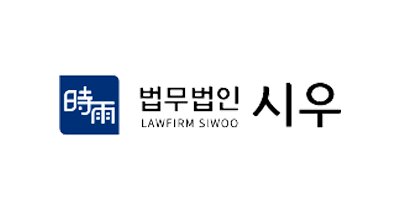Best Nonprofit & Charitable Organizations Lawyers in South Korea
Share your needs with us, get contacted by law firms.
Free. Takes 2 min.
Or refine your search by selecting a city:
List of the best lawyers in South Korea
About Nonprofit & Charitable Organizations Law in South Korea
In South Korea, nonprofit and charitable organizations play a vital role in addressing societal needs and improving community welfare. These organizations are typically involved in activities related to education, culture, health, and social services, operating without the intention of profit distribution to members or stakeholders. The legal framework governing these entities is designed to ensure transparency, accountability, and the appropriate use of resources to meet their stated charitable missions. Compliance with regulations is crucial, as it affects tax benefits, eligibility for subsidies, and the overall credibility of the organization.
Why You May Need a Lawyer
Legal expertise is important for nonprofit and charitable organizations in South Korea for several reasons. Common situations where legal assistance might be necessary include:
- Establishing a new nonprofit or charitable organization, which involves navigating complex regulatory requirements and obtaining the necessary registrations and certifications.
- Drafting bylaws, articles of incorporation, or other foundational documents to structure the organization legally and operationally.
- Ensuring compliance with national and local reporting requirements, particularly in regards to annual financial statements and audits.
- Navigating tax-exempt status and understanding eligibility criteria for tax incentives or government grants.
- Handling disputes or legal challenges related to governance, member rights, or operational conduct.
- Advising on employment and labor laws as they apply to the staff of the organization, including volunteers.
Local Laws Overview
Key legal aspects relevant to nonprofit and charitable organizations in South Korea include:
- Foundational Requirements: Organizations must be registered with local authorities and meet specific criteria to qualify as a nonprofit or charitable entity.
- Regulatory Body: The Ministry of Strategy and Finance oversees the regulation of these organizations, ensuring that they comply with laws governing charitable activities.
- Tax Laws: Nonprofit organizations may qualify for tax exemptions, but they must adhere strictly to reporting requirements and demonstrate that funds are used for designated purposes.
- Financial Transparency: Entities must maintain detailed financial records and may be subject to regular audits to ensure the proper management of funds.
- Donor Restrictions: There are specific regulations regarding the receipt and utilization of donations to prevent misuse and ensure that they support the intended charitable causes.
Frequently Asked Questions
1. What are the steps to establish a nonprofit organization in South Korea?
The process typically involves drafting the organization's constitution, registering with the relevant governmental agencies, obtaining necessary certifications, and opening a bank account for organizational transactions.
2. Can foreign nationals establish a nonprofit in South Korea?
Yes, foreign nationals can establish nonprofit organizations in South Korea but must comply with local laws and registration requirements.
3. How does a nonprofit qualify for tax-exempt status?
To qualify, a nonprofit must apply to the Ministry of Strategy and Finance and demonstrate that its activities serve public benefit purposes. Compliance with reporting and operational regulations is essential for maintaining this status.
4. What are the reporting requirements for nonprofits?
Nonprofits must submit annual financial statements and activity reports to the regulating authority, often accompanied by an audit or review depending on the organization's size and revenue.
5. Are there restrictions on how nonprofits can receive and utilize donations?
Yes, there are guidelines on how donations can be received and used. Misappropriation of donations can lead to penalties or loss of tax-exempt status.
6. What are the penalties for non-compliance with nonprofit laws?
Penalties may include fines, revocation of tax-exempt status, or loss of legal status as an organization, depending on the severity and nature of the violation.
7. Are nonprofits allowed to generate income through business activities?
While nonprofits can engage in business activities, they must ensure that profits are used to support the organization’s non-commercial goals and reinvested for public benefit.
8. Can nonprofits hire paid staff?
Yes, nonprofits can hire paid staff and must comply with applicable employment and labor laws in South Korea.
9. How do external audits work for nonprofits?
Nonprofits are often required to undergo external audits by accredited auditing firms to ensure financial transparency and compliance.
10. What is the role of a board of directors in a nonprofit?
The board of directors provides governance and oversight, ensuring that the organization operates within its mission, complies with laws, and manages resources efficiently.
Additional Resources
Consider reaching out to the following organizations and resources for further assistance:
- The Korean Council of Nonprofit Organizations (KCNO): Provides resources and support for nonprofit organizations.
- The Ministry of Strategy and Finance: Oversees regulations related to nonprofit and charitable organizations.
- Local Legal Aid Centers: Offer advice and legal support for developing and managing organizations.
Next Steps
If you need legal assistance in the area of nonprofit and charitable organizations in South Korea, consider the following actions:
- Conduct preliminary research to understand your basic needs and challenges.
- Consult with a legal expert specializing in nonprofit law to ensure compliance and address specific issues.
- Reach out to relevant government departments or local organizations for guidance and support during the establishment or operation of your nonprofit.
- Consider attending workshops or seminars that offer insights into nonprofit and charitable organization laws.
Lawzana helps you find the best lawyers and law firms in South Korea through a curated and pre-screened list of qualified legal professionals. Our platform offers rankings and detailed profiles of attorneys and law firms, allowing you to compare based on practice areas, including Nonprofit & Charitable Organizations, experience, and client feedback.
Each profile includes a description of the firm's areas of practice, client reviews, team members and partners, year of establishment, spoken languages, office locations, contact information, social media presence, and any published articles or resources. Most firms on our platform speak English and are experienced in both local and international legal matters.
Get a quote from top-rated law firms in South Korea — quickly, securely, and without unnecessary hassle.
Disclaimer:
The information provided on this page is for general informational purposes only and does not constitute legal advice. While we strive to ensure the accuracy and relevance of the content, legal information may change over time, and interpretations of the law can vary. You should always consult with a qualified legal professional for advice specific to your situation.
We disclaim all liability for actions taken or not taken based on the content of this page. If you believe any information is incorrect or outdated, please contact us, and we will review and update it where appropriate.
Browse nonprofit & charitable organizations law firms by city in South Korea
Refine your search by selecting a city.
















